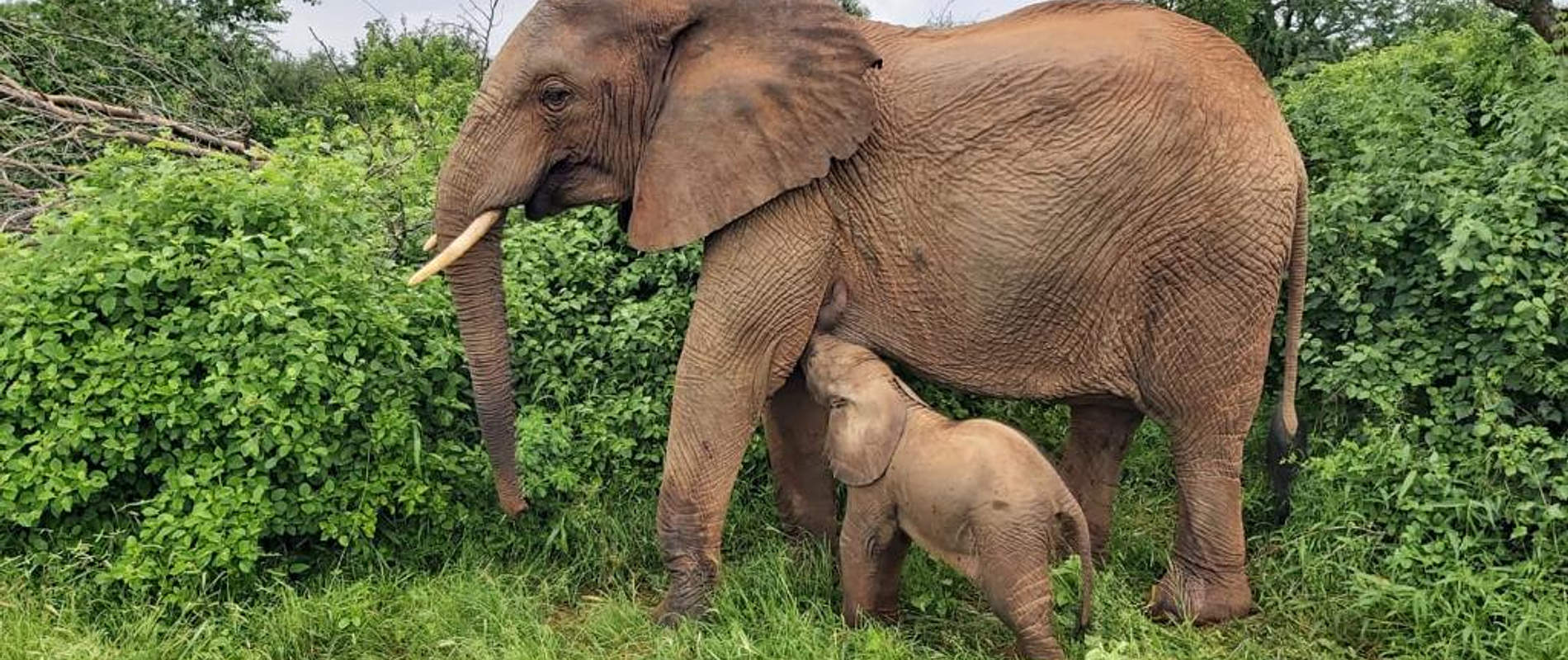At the peak of the poaching crisis, one elephant was killed every 15 minutes for its ivory. It was during this time, in July 2011, that villagers in Chala spotted a lone calf staggering into Tsavo from the Tanzania side. She was far too young to be on her own and perilously emaciated. We will never know what this elephant endured before her lonely trek towards Kenya, but we can safely assume that she lost her mother at the hands of poachers.
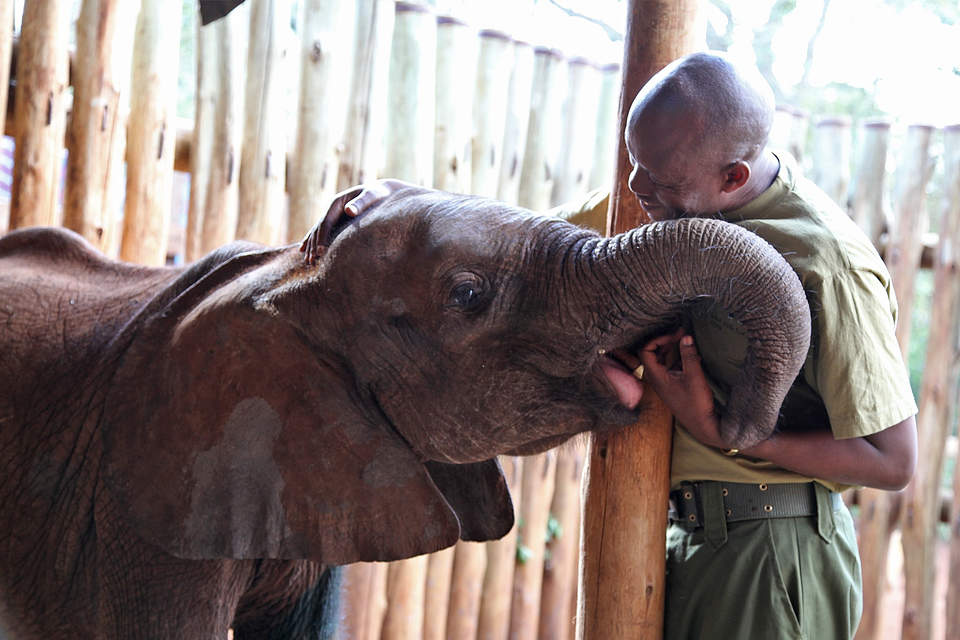
Kilabasi was one of the countless babies orphaned in the ivory poaching crisis
That was our introduction to Kilabasi. During her early days at the Nursery, she was very unsettled and prone to wandering off, as is typical of orphans who are wracked with grief. Over the years, however, Kilabasi really came into her own. She emerged as a self-assured, no nonsense elephant who wasn’t daunted by anything. This was illustrated perfectly when she graduated to Ithumba in January 2013: While her travelling partner, Kanjoro, was a ball of nerves, Kilabasi was nonchalant throughout the entire journey! She confidently emerged from the truck and strode into her new home without a backwards glance. Her arrival in Tsavo was strikingly different from her arrival at the Nursery.
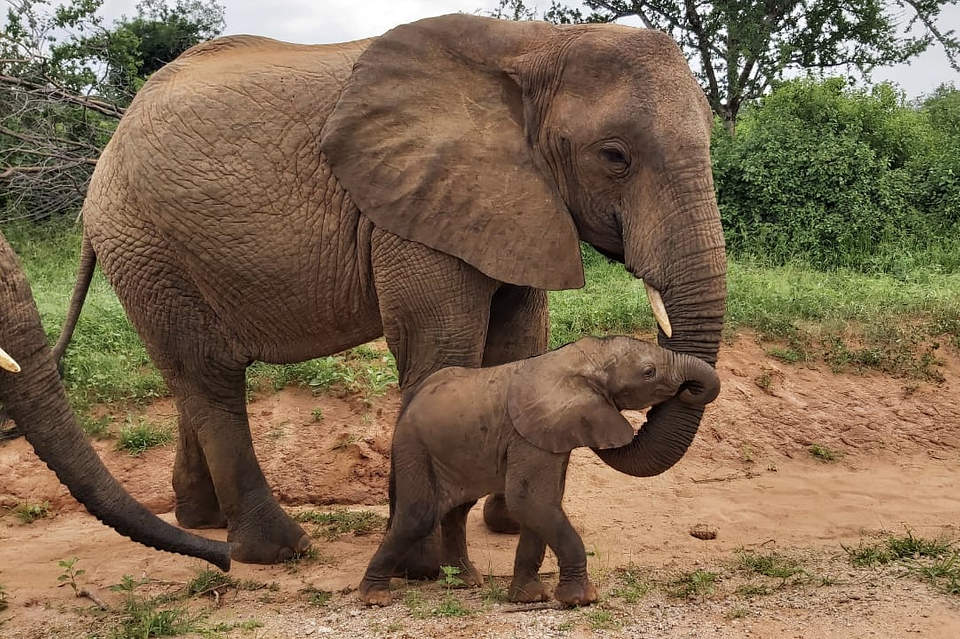
We begin the new year on a happy note, celebrating new life (Kofi with nanny Makireti)
Kilabasi has been living wild for many years now. However, she makes a point to visit her Ithumba family on a regular basis — which is why we knew that she had an exciting addition on the horizon. Over the better part of two years, what began as a slight bulge grew into a perfectly round belly. It was a privilege to witness the transformation, proof that new life was being nurtured within.
The end of Kilabasi’s pregnancy coincided with the worst of the dry season, so she prudently chose to station herself close to Ithumba. By this point, she was impossibly large. In fact, Benjamin and the other Keepers thought she couldn’t possibly gestate a moment longer! But while the rains eventually came, still Kilabasi’s baby did not arrive.
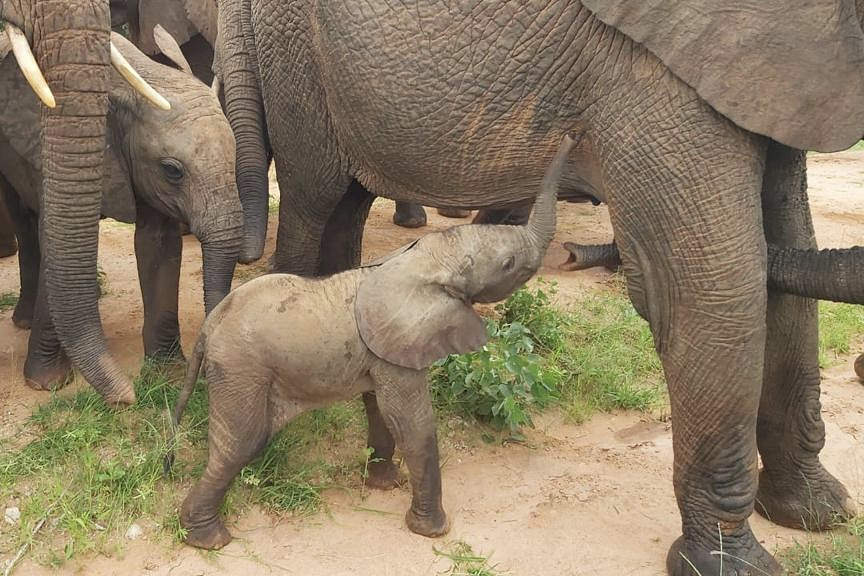
Given Ithumba's baby boom, Kofi will have no shortage of playmates as he grows up
However, good things come to those who wait, and on the morning of 2nd January 2022, Kilabasi introduced us to her brand new baby boy. He is a cherub of an elephant, with an inquisitive little trunk and perfect, heart-shaped ears. We have named him Kofi. Many of our other ex orphan mums have remained in the environs of Ithumba, so Kofi will have no shortage of tiny playmates as he grows up — nor will Kilabasi lack nannies eager to help her with mothering duties!
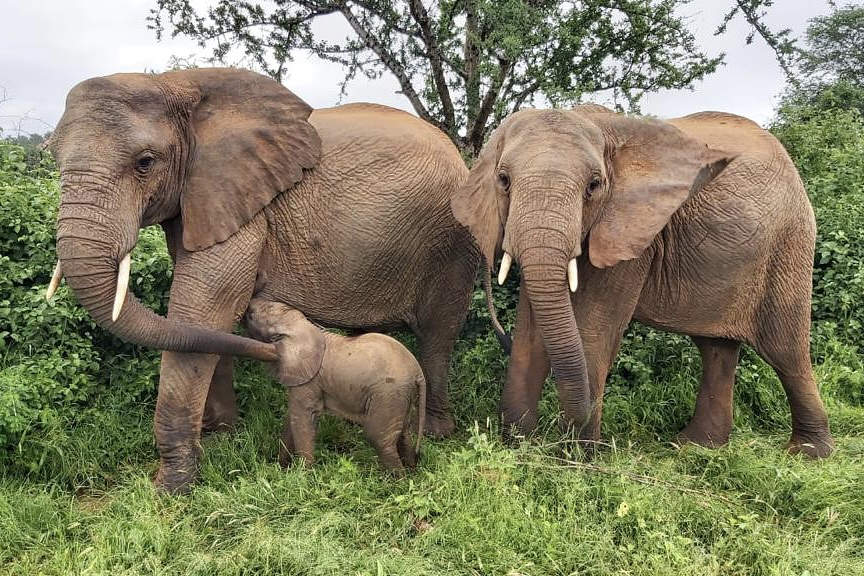
Kilabasi was a great nanny to her friends' babies, and now she gets to pass the baton to her younger friends
We feel blessed indeed in the baby department: The end of 2021 was marked by an extraordinary baby boom in Ithumba, with six calves born in as many weeks. 2022 began on an equally auspicious note, as Icholta introduced the Voi Keepers to her newest addition. Now, Kofi becomes the 46th known baby born to an orphan we rescued, raised, and reintegrated back into the wild.
Kilabasi was rescued at a time when the future of elephants was looking bleak. However, a lot can change over the course of the decade — and wild-born babies like Kofi are living proof of the progress that has been made. We are delighted to witness the beginning of Kilabasi’s new chapter, with little Kofi by her side.
